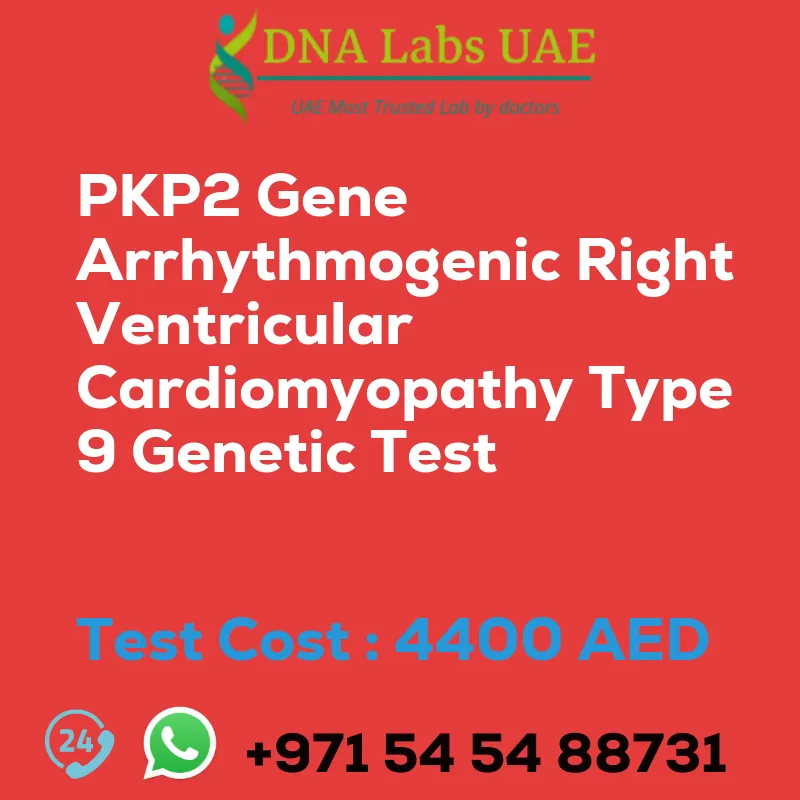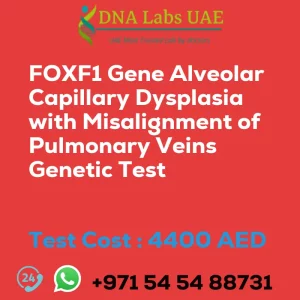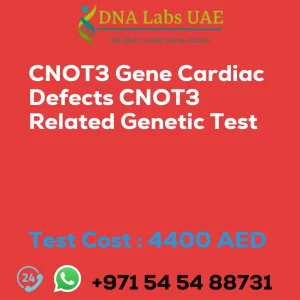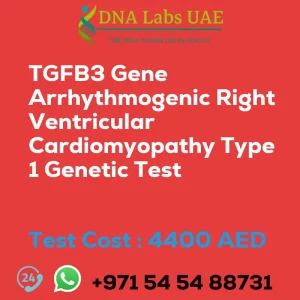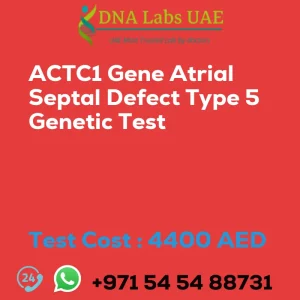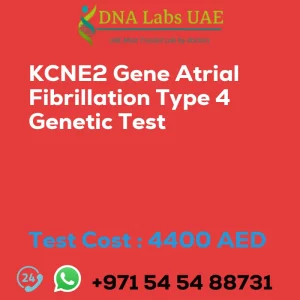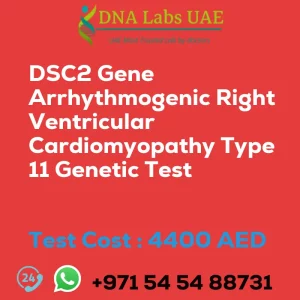PKP2 Gene Arrhythmogenic right ventricular cardiomyopathy type 9 Genetic Test
Components: PKP2 Gene Arrhythmogenic right ventricular cardiomyopathy type 9 Genetic Test
Price: 4400.0 AED
Sample Condition: Blood or Extracted DNA or One drop Blood on FTA Card
Report Delivery: 3 to 4 Weeks
Method: NGS Technology
Test type: Cardiovascular Pneumology Disorders
Doctor: Cardiologist
Test Department: Genetics
Pre Test Information: Clinical History of Patient who is going for PKP2 Gene Arrhythmogenic right ventricular cardiomyopathy type 9 NGS Genetic DNA Test. A Genetic Counselling session to draw a pedigree chart of family members affected with PKP2 Gene Arrhythmogenic right ventricular cardiomyopathy type 9 NGS Genetic DNA Test gene PKP2
Test Details: Arrhythmogenic right ventricular cardiomyopathy (ARVC) is a genetic disorder that affects the heart muscle and can lead to abnormal heart rhythms and potentially life-threatening arrhythmias. It is characterized by the replacement of the normal heart muscle tissue with fibrous and fatty tissue. The PKP2 gene (Plakophilin-2 gene) is one of the genes associated with ARVC. Mutations in the PKP2 gene can disrupt the normal structure and function of the heart muscle cells, leading to the development of ARVC. NGS (Next-Generation Sequencing) genetic testing is a type of genetic testing that uses advanced sequencing technologies to rapidly analyze multiple genes simultaneously. In the case of ARVC, NGS genetic testing can be used to identify mutations in the PKP2 gene and other genes associated with the condition. By analyzing the patient’s DNA sample, NGS genetic testing can provide valuable information about the presence of PKP2 gene mutations and help in the diagnosis and management of ARVC. It can also be used for genetic counseling and to identify at-risk family members who may carry the same mutation. It is important to note that ARVC is a complex genetic disorder, and mutations in other genes, such as desmosomal genes (e.g., DSP, DSG2, and DSC2), can also cause the condition. Therefore, a comprehensive genetic testing panel that includes multiple genes associated with ARVC is typically recommended for accurate diagnosis and risk assessment.
| Test Name | PKP2 Gene Arrhythmogenic right ventricular cardiomyopathy type 9 Genetic Test |
|---|---|
| Components | |
| Price | 4400.0 AED |
| Sample Condition | Blood or Extracted DNA or One drop Blood on FTA Card |
| Report Delivery | 3 to 4 Weeks |
| Method | NGS Technology |
| Test type | Cardiovascular Pneumology Disorders |
| Doctor | Cardiologist |
| Test Department: | Genetics |
| Pre Test Information | Clinical History of Patient who is going for PKP2 Gene Arrhythmogenic right ventricular cardiomyopathy type 9 NGS Genetic DNA Test. A Genetic Counselling session to draw a pedigree chart of family members affected with PKP2 Gene Arrhythmogenic right ventricular cardiomyopathy type 9 NGS Genetic DNA Test gene PKP2 |
| Test Details |
Arrhythmogenic right ventricular cardiomyopathy (ARVC) is a genetic disorder that affects the heart muscle and can lead to abnormal heart rhythms and potentially life-threatening arrhythmias. It is characterized by the replacement of the normal heart muscle tissue with fibrous and fatty tissue. The PKP2 gene (Plakophilin-2 gene) is one of the genes associated with ARVC. Mutations in the PKP2 gene can disrupt the normal structure and function of the heart muscle cells, leading to the development of ARVC. NGS (Next-Generation Sequencing) genetic testing is a type of genetic testing that uses advanced sequencing technologies to rapidly analyze multiple genes simultaneously. In the case of ARVC, NGS genetic testing can be used to identify mutations in the PKP2 gene and other genes associated with the condition. By analyzing the patient’s DNA sample, NGS genetic testing can provide valuable information about the presence of PKP2 gene mutations and help in the diagnosis and management of ARVC. It can also be used for genetic counseling and to identify at-risk family members who may carry the same mutation. It is important to note that ARVC is a complex genetic disorder, and mutations in other genes, such as desmosomal genes (e.g., DSP, DSG2, and DSC2), can also cause the condition. Therefore, a comprehensive genetic testing panel that includes multiple genes associated with ARVC is typically recommended for accurate diagnosis and risk assessment. |

